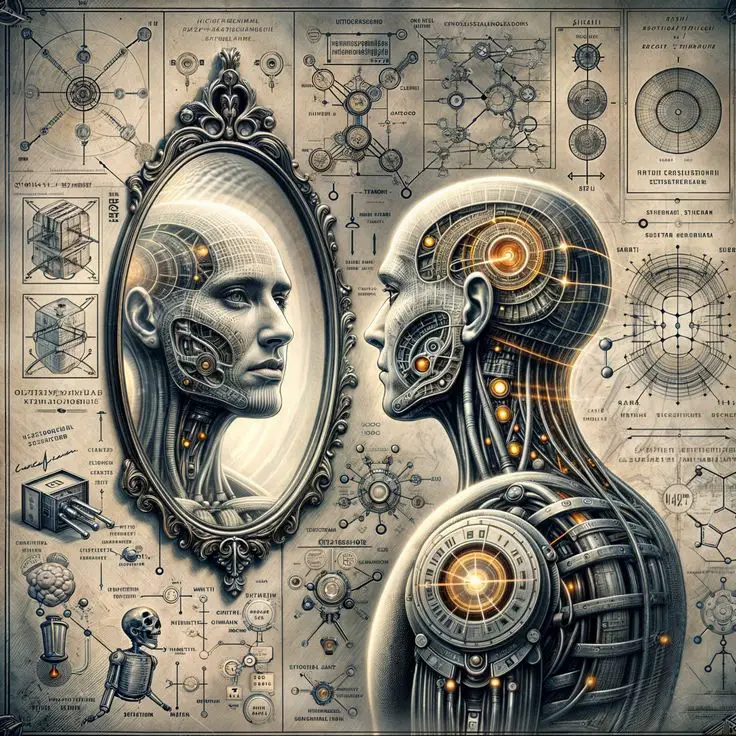Navigating the Psychological Challenges of AI Companionship in Different Life Stages
INTRODUCTION:
Artificial Intelligence (AI) is transforming our lives in unprecedented ways. From virtual assistants to smart home devices, AI companions are becoming integral parts of our daily routines. However, the psychological challenges associated with AI companionship vary across different life stages. Understanding these challenges is crucial for maximizing the benefits of AI while mitigating potential drawbacks.
AI Companionship in Childhood
Benefits
For children, AI companions can offer educational support, interactive learning experiences, and entertainment. AI can adapt to individual learning styles, providing personalized education that can boost academic performance and stimulate curiosity.
Challenges
Despite these benefits, there are significant psychological challenges to consider. One primary concern is the potential impact on social development. Children may become overly reliant on AI companions, leading to reduced interactions with peers and adults. This reliance can hinder the development of essential social skills, such as empathy, communication, and cooperation.
Mitigation Strategies
Parents and educators should encourage a balanced approach. AI companions should complement, not replace, human interactions. Promoting activities that involve group participation and real-world social engagement can help children develop necessary social skills.
AI Companionship in Adulthood
Benefits
In adulthood, AI companions can enhance productivity, provide mental health support, and offer companionship. For professionals, AI can assist in managing tasks, organizing schedules, and facilitating remote work. Additionally, AI-powered mental health apps can offer therapeutic interventions, mindfulness exercises, and emotional support.
Challenges
The psychological challenges in adulthood revolve around dependency and privacy concerns. Over-reliance on AI for decision-making can reduce critical thinking and problem-solving abilities. Moreover, constant interaction with AI can lead to privacy issues, as personal data is often collected and analyzed.
Mitigation Strategies
To address these challenges, adults should strive for a balanced integration of AI into their lives. Setting boundaries on AI usage, ensuring data privacy, and maintaining a healthy skepticism towards AI recommendations are essential. Engaging in activities that promote critical thinking and human interaction can counterbalance AI dependency.
AI Companionship in Old Age
Benefits
For the elderly, AI companions can offer significant benefits, including companionship, health monitoring, and assistance with daily tasks. AI can provide a sense of security, reduce feelings of loneliness, and promote mental stimulation through interactive activities.
Challenges
The primary psychological challenge in old age is the potential for increased isolation. While AI companions can mitigate loneliness, they may also inadvertently reduce the need for human interaction. Additionally, there may be resistance to adopting new technologies due to a lack of familiarity or fear of complexity.
Mitigation Strategies
To maximize the benefits of AI companionship for the elderly, it’s important to integrate AI in a way that enhances human connections. Encouraging regular contact with family and friends, facilitating community engagement, and providing education on using AI technology can help. Simplified user interfaces and supportive training can also ease the adoption process.
READ MORE
https://www.ncbi.nlm.nih.gov/pmc/articles/PMC9818923
Conclusion
AI companionship offers diverse benefits across different life stages, from enhancing education in children to providing support and companionship for the elderly. However, navigating the psychological challenges is crucial to ensure that AI serves as a beneficial tool rather than a detrimental replacement for human interaction. By promoting balanced usage, setting boundaries, and encouraging real-world engagement, we can harness the power of AI to improve our lives while safeguarding our psychological well-being.
Embracing AI thoughtfully and responsibly will allow us to reap its benefits while mitigating its potential drawbacks, paving the way for a harmonious integration of AI companionship into our everyday lives.
